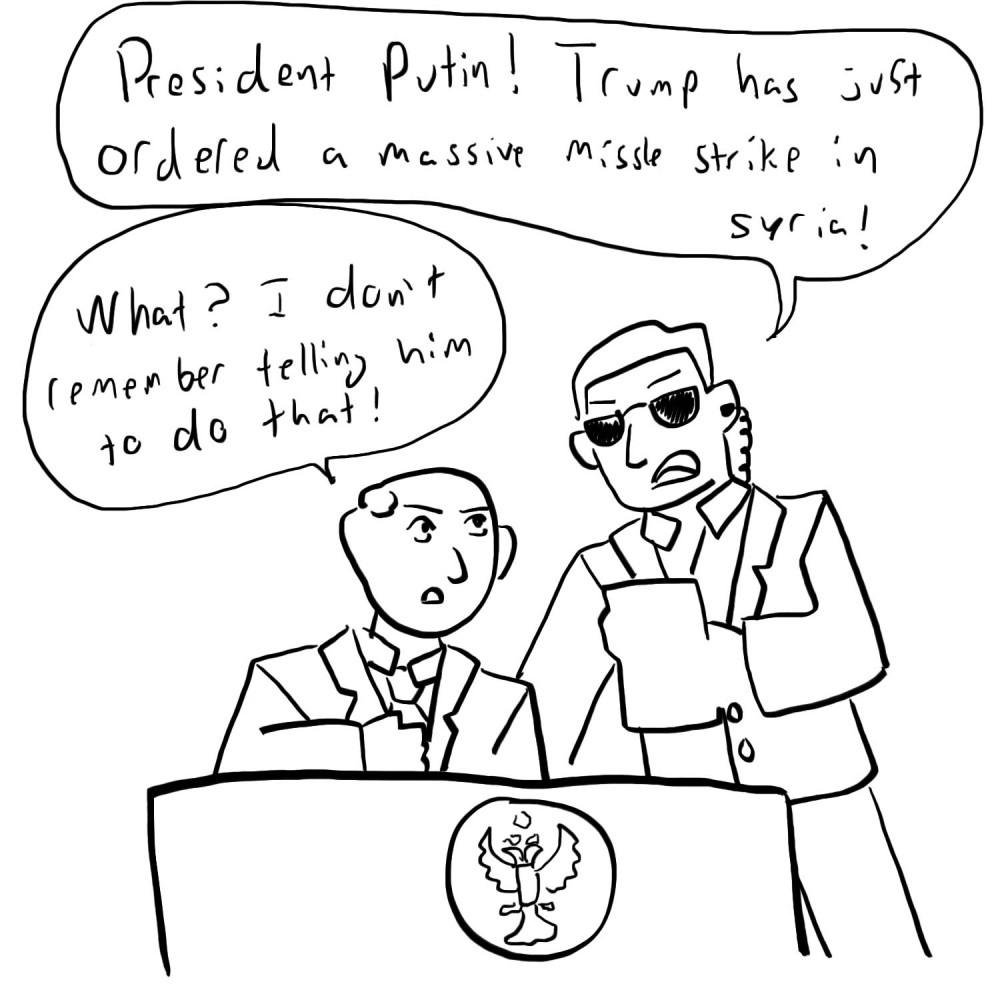The use of sarin gas by the Assad regime in an attack on its civilian population represents a grave moral failing and departure from international law.
The chemical weapons strike on the town of Khan Sheikhoun killed 87, including women and children, with many more left wounded.
Chemical weapons have been banished from civilized nations since WWI. The international consensus surrounding that ban is perhaps the closest thing to a unanimous agreement achieved by countries in modern times.
Because of this, the Editorial Board views the Trump administration’s strike on the air base the chemical attack was launched from as a necessary and proportional response to Assad’s inhumane war crime.
Secretary of Defense James Mattis said the attack, which consisted of 59 Tomahawk cruise missiles launched from U.S. surface vessels offshore the Syrian coast, removed the capability of the Syrian government to launch more chemical strikes.
Furthermore, the U.S. response to the strike was an attempt to send a message to the world that the use of chemical weapons will not be allowed to become an international norm.
The Syrian civil war has been a humanitarian disaster, with millions displaced and the region destabilized, and the U.S. response to the chemical attack does nothing to solve the underlying problems that led to the use of sarin gas in the first place.
There is cause for concern within this proportioned response to a chemical attack well outside international norms.
Most college-aged students are well aware of how entangling war in the Middle East can be. Many of the conflicts originally proposed as short-term interventions that have turned into costly, long-term occupations.
Any additional use of U.S. military force in an attempt to bring the Syrian conflict to a peaceful resolution should be viewed with serious skepticism before we commit ourselves to another fruitless, decades-long insurgent war in the region.
Escalation of force is a slippery slope. Use of cruise missiles today can lead to air strikes tomorrow to the deployment of special forces to finally the use of conventional forces in a war for control of the region.
In making those military decisions, the U.S. should not blindly be drawn into another conflict.
While it might be satisfying in the short term to overthrow a government that uses chemical weapons on its people, any additional use of force should be based on clearly articulated goals and a plan that leads to long-term stability in the region.
In a worst case scenario, overthrowing the Assad regime could lead to a power vacuum that allows radical groups like the Islamic State to assert even more control in the Middle East.
The problems of the Syrian Civil War will not be solved overnight, but preventing the use of chemical weapons in it is good for civilians there and for the long term goal of keeping the international consensus on the ban of chemical weapons strong.



